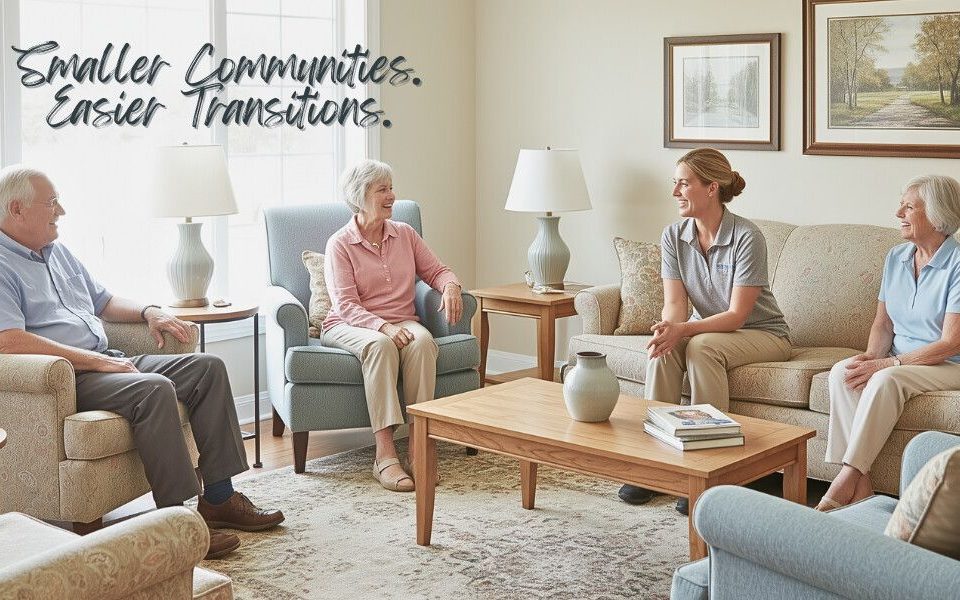
Choosing a senior living community for your parent is a major life decision. It involves more than researching amenities or comparing costs. You want to find a place that supports their health, respects their independence, and helps them thrive. This blog outlines essential steps to evaluate options and make the best choice.
9 Factors for Choosing the Right Senior Living Community for Your Parent
1. Assess Your Parent’s Specific Needs
Identify your parent’s care requirements. Consider how much help they need with daily activities like dressing, bathing, eating, or managing medication. Consider their physical health, cognitive ability, and any chronic conditions requiring more care over time. What is their need for social interaction and structure in daily life?
2. Understand the Different Types of Senior Living
Think about the different levels of care various facilities provide:
- Independent Living is for active individuals who want a low-maintenance lifestyle and social opportunities. Medical care is usually not included.
- Assisted Living offers help with daily activities and 24/7 access to staff. Residents maintain independence while receiving personalized support.
- Memory Care centers are specialized environments for people with Alzheimer’s or dementia. They emphasize safety, cognitive support, and routine.
- Adult Day Care is ideal for people living at home who need supervision, health services, or social engagement during the day.
Match the care level to your parent’s current condition and anticipated changes.
3. Research Local Senior Living Communities
Once you’ve identified the appropriate type, research local options to build a shortlist. Use state senior service directories, healthcare provider referrals, or senior-focused nonprofits. Read reviews, verify licensure, and gather details about services provided.
4. Consider Location and Accessibility
Staying local helps maintain your parent’s social connections and supports regular visits. Proximity to family, hospitals, and familiar places can ease the transition. Evaluate the community’s design: Are there ramps, elevators, or wide hallways for mobility aids?
5. Schedule and Conduct Thorough Tours
Visit your shortlisted communities in person. Observe how staff interact with residents. Check for cleanliness, safety features, and the general atmosphere. Look for signs of engagement, not just appearances.
6. Ask Targeted Questions
Prepare specific questions before each tour. Ask about staff training, emergency protocols, medical care coordination, resident rights, and communication methods with families. Clarify how care plans are developed and updated.
7. Observe Social Engagement and Activities
Ask for a copy of the monthly activity calendar. Does it reflect your parent’s interests? During the visit, observe whether residents appear engaged and if the activities seem meaningful or repetitive.
8. Understand the Costs and Financial Implications
Request a full breakdown of costs. Include base rates, care-related fees, deposits, and monthly billing practices. Ask about contract terms, rate increases, and available financial support, such as veterans’ benefits or Medicaid waivers.
9. Trust Your Gut and Involve Your Parent
Your instincts matter. Pay attention to how you feel during and after each visit. If possible, include your parent in the process. Their comfort, preferences, and emotional response to each environment should be part of the final decision.
Ready to Take the Next Step?
Choosing the right senior living community is a significant step in ensuring your parent’s comfort and well-being. Consider these factors to make a more informed and confident decision. Look beyond checklists and consider what will support your parent’s long-term life, health, and happiness.
If you’re looking for a trusted option, Mountainside Senior Living offers compassionate care, flexible services, and a supportive community for older adults. Take the next step today. Contact us or schedule a tour to see how we can support your parent’s next chapter firsthand. Your parent deserves the best possible care.



